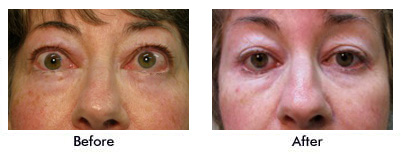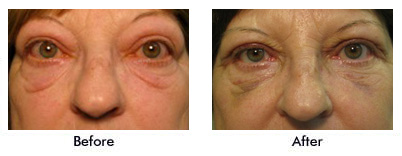
Thyroid Eye Disease
What causes Graves Disease?
Grave’s disease is not caused by an overactive thyroid gland. The exact cause is unknown, however, an autoimmune component has been suggested. Normally, the immune system uses antibodies to help protect itself against viruses, bacteria and other foreign substances that invade the body. In Grave’s disease the immune system mistakenly ‘attacks’ the thyroid gland and eyes causing some of the disease’s symptoms.
What are the symptoms of Thyroid Eye Disease (TED)?
The most common ocular symptoms include:
- Mild soreness of the eyes
- Grittiness
- Increased watering
- Photophobia (sensitivity to bright lights)
- Feeling of discomfort behind the eyes especially when looking up or side to side
- Puffiness of the upper eyelid or around the eyes (baggy eyelids), and can be worse in the mornings
- Dry eyes or watery eyes
- Double vision- which is a response to swelling of the eye muscles causing restriction of eye movement
What are the effects/signs of TED?
The effects of TED include:
- Lid retraction- due to tightness of the eyelid muscles
- Proptosis (protruding eye)- due to orbital inflammation and eye muscle enlargement
- Corneal exposure- due to the above two signs
- Optic nerve compression- as a result of orbital fat inflammation and eye muscle enlargement causing compression of the optic nerve
- Glaucoma- the pressure in the eye may become raised


What is the treatment for TED?
The treatment of TED depends largely on the severity of signs and symptoms.
- Eyelid Retraction
Lubricating eye drops may be necessary because of eye exposure and the dry eye symptoms. Many patients also require taping the lids shut at night. If the lid remains retracted it may require surgical correction to lower the upper eyelid and raise the lower eyelid. - Proptosis
This may settle without treatment, but in most circumstances may require medical management, such as oral steroids or radiotherapy. Surgery for reducing the proptosis (i.e. orbital decompression surgery) may be the treatment of choice. - Double Vision
This may respond to prisms but may, with time, require surgery to straighten the eyes. - Optic Nerve Compression
Urgent surgery is generally required though steroids and radiotheraypy may be adequate to control the compressive problem. - Glaucoma
Anti-glaucoma eye drops may be required.


